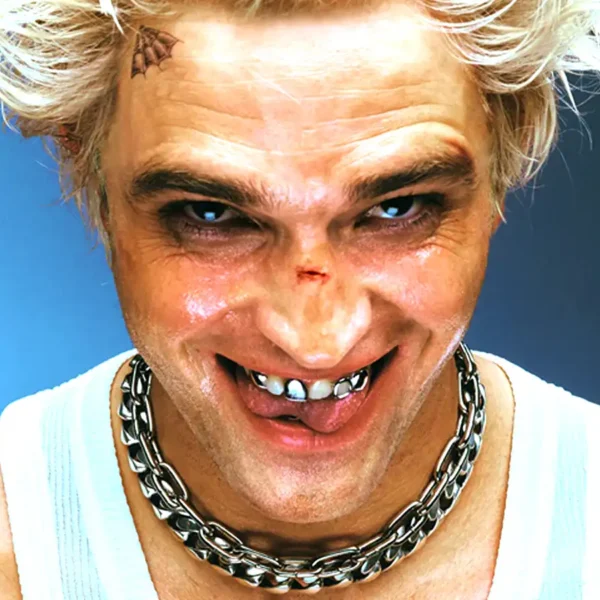
BBC’s Capital
The Close Study Product
Does money buy happiness? When the disparate residents of Pepys Road in South London receive anonymous postcards with the unsettling message “we want what you have”, their complicated lives begin to unravel. Combining elements of satire and even crime fiction, this gripping three-part drama positions the audience to question if the price of their properties is more important than the value of their relationships.
In the press release for “Capital”, the executive producer, Derek Wax, believed the story “magnificently captures the mood of our age, with an unforgettable ensemble of characters and a humane, incisive comic eye”. The programme’s wry commentary on life is certainly worth watching.
If you are following AQA’s A-Level Media Studies specification, you will need to consider the representation of character and setting, the codes and conventions of television drama, the programme’s audience, and the institutions behind the broadcast. We have a lengthy list of essay questions at the bottom of the page to help focus your thoughts on “Capital”, but we are going to begin with its narrative.
You should also read our guide to “Deutschland 83” because you might be expected to compare and contrast the two texts.
BBC One Trailer
You need to study the product in detail so make sure you watch all three episodes and become familiar with the various character arcs. Remember, you should refer directly to aspects of the text to support your arguments. Have a quick look at BBC’s dedicated page for “Capital” and learn more about the cast and characters. The original trailer is a good way to get a broad introduction to the plot.
Narrative Analysis of “Capital”
A narrative is the sequencing of events into a particular order to engage the audience. By looking at how the producers pieced together the beats of the story, we can develop our understanding of the culturally significant meanings encoded in the text.
Although “Capital” is a linear narrative which follows the lives of people living and working on the affluent London street, there are several stories we need to analyse.
Equilibrium and Disruption
Tzvetan Todorov described a basic plot as the movement from equilibrium to disequilibrium, or vice versa. In “Capital”, the main characters are each in a state of equilibrium at the start of the narrative.
Roger is the city banker who has helped his multinational company navigate through the financial crisis of the late 2000s and avoided the high “levels of volatility” in the market. He comments to his boss, “£75million on £625million turnover. Not so dusty in the current climate.”

Roger believes he should be remunerated for his success and expects a large bonus. Although “the figures speak for themselves” and Roger’s own evaluation is “very strong”, the protagonist is given a measly £35,000 extra for his efforts.
The disruption is clear in Roger’s increasingly anxious body language, especially the medium shot of his finger pressing against the table, and the way his tone of disbelief turns to anger: “What use is thirty grand to anybody?” Toby Jones is terrific in this scene because it is not easy to get the audience to sympathise with his predicament.
The huge impact on his life is reinforced by the clever intercut between reaction shots in the boardroom, the character running into the toilet cubicle to be physically sick, and the fast motion shots of what happens next. Going down in the elevator is an obvious signifer for the change in his state – equilibrium to disequilibrium. His fragile mind is connoted by the shaky camerawork through the streets. And his fidgeting in the Tube train makes it clear he is aware of the disruption to his life. So he drinks whiskey alone and in the dark dining room. It seems there is no hope for a repair.
Activity One
Describe the state of equilibrium of Petunia and Quentina at the start of their narrative arcs. What causes the disruption in their lives?
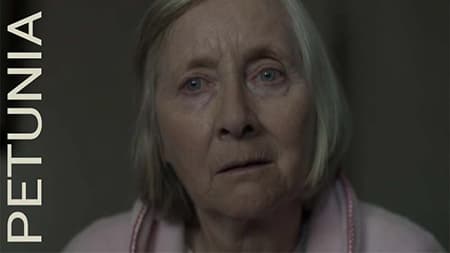
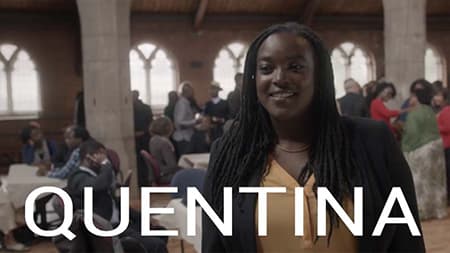
Action and Enigma Codes
Roland Barthes argued there were two codes which helped with the chronology of the story: action and enigma codes. Action codes are plot points which simply lead to the next beat of the story. Enigma codes, by contrast, occur when writers deliberately withhold information, creating a sense of intrigue and mystery, and then reveal the truth later in the narrative. An example from “Capital” might help clarify the difference between these two codes.
Petunia and Smitty
Consider the following scene from the first episode where Graeme (or Smitty) visited his grandmother.

We first glimpse Graeme on the train and then rushing up the escalator. He counts out his coins to buy the box of chocolates from the shop. He walks past Roger on the street. Each beat draws the audience’s attention to the character, but the producers withhold his identity until he meets Petunia. Our curiosity is typical of an enigma code – we want to know the truth.
Although the identity of the young man is unknown at this point, the audience might decode the character as a threat because he is wearing a dark hood and smoking a cigarette – two signs which are often associated with deviant behaviour in the media. We can see the character walking towards the frail Petunia and we know there will be collision. This tension is very typical of an action code because the audience are nervously waiting to discover the outcome of the scene.
Enigma Codes Task
Explain how “Capital” uses the enigma code “we want what you have” to engage the audience. You should consider how the different characters react to the ominous message. For instance, Bogdan thinks the postcards comes from an estate agent, Shahid thinks it could be a viral ad campaign while Usman thinks the policeman should “file it under Islamophobia and forget all about it”.
Make sure you focus on the audience’s interpretation of the important signifier.
What other enigma codes are used to keep the audience in suspense? For example, just what is Mark doing at Pinker Lloyd on a Saturday? Find out in the next exciting episode of “Capital”.

Action Codes Task
Some action codes are obvious. When Mary arrives at her mother’s house carrying a gift bag and a bottle of wine, we know she wants to spend time with Petunia. We are also aware of the tension in their relationship so we are eager to see what happens in the scene. Sadly, Petunia breaks the news “it’s too late”.
Write down five other action codes used in “Capital” and explain how these beats in the story appeal to the audience.
Causality
Causality is cause-and-effect relationship between plot points. Answer the following three questions which focus on aspects of the linear narrative.
- Explain Quentina’s arrest in terms of causality
- What prompts Arabella to leave on Christmas Eve?
- Why does Danny feel obliged to take in Iqbal?
“Capital” Trailer for Pivot TV
This particular trailer was for Pivot TV, an American digital television network. Since it focuses on the characters and their desire to repair their disequilibrium, you should analyse how the narrative might appeal to the American audience’s values and ideologies.
The Representation of Wealth
Money makes the run go round and round. “Capital” plays with representations of money and its influence on our lives and identities, especially the gap between the rich and poor. Let’s start with Arabella. Her character is vividly defined by her opening line: “where do you stand vis-à-vis cedar cladding”.
Constantly demanding the family home to be refurbished, weekends at the country house, expensive school fees, “frock money”, employing nannies and gardeners, Arabella is the epitome of wealth and taste. After Roger lists these aspects of their lives, Arabella responds, “Name me one of those things which isn’t absolutely essential.”
From her perspective on the world, Arabella believes the postcards are motivated by “class envy” and that “the rich are an easy target”. She also worries the “plight of the middle classes” is no longer being prioritised by the police, so the mystery of the postcards’ origins will not be solved.
Roger’s snobbery is epitomised by his concern his wine “tastes young” – a concern that might be decoded as ridiculous by the audience.
By contrast, Quentina represents an underclass of British society – the asylum seeker. She is not allowed to work because of her refugee status, so she uses a false identity to become a traffic warden. She launders her money through an unscrupulous handler who pockets £100 of her wages. His desire for a kiss is not just humiliating but quite menacing as well. Shes says to Mashinko her home is “not a nice place”. It is a place she shares with strangers. Under the constant threat of repatriation to Zimbabwe and working in a job where she is ridiculed and scorned, Quentina struggles to survive because of her lack of wealth.
However, she maintains her dignity and composure throughout.
Think about the moral panics regarding “fat-cat” buisness leaders and deviant illegal immigrants. Although the programme pokes fun at Roger and Arabella’s values and behaviour, we do sympathise with their predicament. There is no banker bashing being encoded in the programme. Quentina is not demonised in the script either. Instead, the audience warm to her romance with Mashinko, the joy of her faith when we see her singing in church, her worries about body shape, and her wonderful smile. In fact, she is one of the characters were are positioned to identify with the most. In this way, “Capital” moves beyond the obvious stereotypes and gives the audience a broader representation of wealth and social class.
Representation Task
One of the best contrasts in wealth is the representation of Roger and Arabella’s home compared to Petunia’s dark, old house. With their open-plan living and generously-sized dining table, the Yount’s kitchen is “top spec”. When Mary visits her mother, she jokes “it’s a miracle anything is warm considering the state of your cooker”. Petunia responds, “There’s a knack with the switch.”
Test your semiotic skills by comparing and contrasting how wealth is encoded in the following two screenshots from “Capital”:

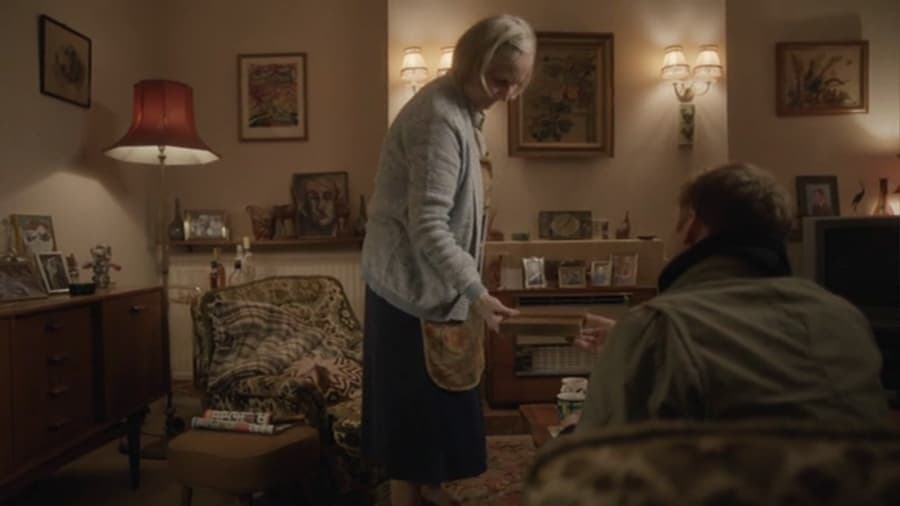
The Use of Stereotypes in “Capital”
Writers often use stereotypes because they are a quick and easy way to communicate meanings which will be easily understood by the audience. This is particularly important with the technical constraints of television. In “Capital”, which is a limited-series with a large ensemble cast, the writers had to depict lots of characters in a short space of time. Of course, the programme’s use of stereotypes in one of the reasons why it is on the syllabus, so don’t be surprised if you get a specific question on representation in the exam.
National and Ethnic Stereotypes
Stereotypes assume everyone in a group has the same traits. However, these representations often ignore the wonderful complexity of the individuals who make up that group. A national stereotype, for instance, might fail to recognise the country’s cultural and racial diversity.
Since London is such a multicultural city, it is no surprise “Capital” features lots of different nationalities. Importantly, some of those representations play with the stereotypes and identities, positioning the audience to question the constructs. As Paul Gilroy argued, there is no cultural absolutism because national and ethnic identities are not fixed – they can change. “Capital” seems to validate Gilroy’s argument.
When Roger discusses the potential size of his work bonus with Arabella, he jokes Germans are the “masters of understatement”. A quick look at the Wikipedia page on stereotypes of Germans suggests they are punctual and they love order. The article also points to a lack of humour. In this way, Roger’s comment is a good summary of the national stereotype. Inevitably, his assumption is wrong because he only gets £30,000 compared to the two million he hoped to receive.
While they are both sitting on the bench in the park, Mashinko questions Roger: “Why do you say sorry so much in England?” Depending on the context, you might apologise to show respect to a stranger or to express your sympathy to someone you know, but there is also some evidence to support the idea of the word “sorry” being used casually every day across Britain. This article from the BBC offers more insight to stereotype. Giving the viewer great insight into his personality, Roger responds it is “fear” that makes him say sorry all the time.
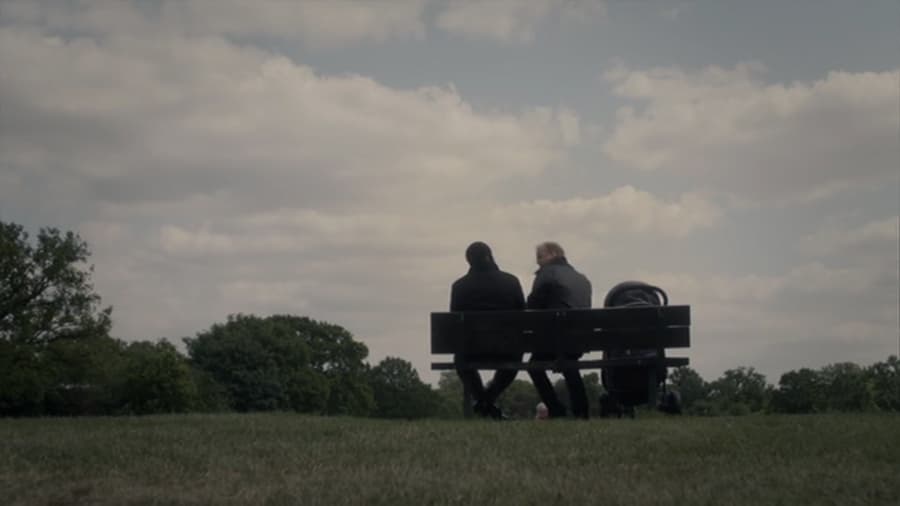
Mashinko also claims the English are “unfriendly”. This negative stereotype could refer to a more reserved manner which appears unwelcoming. You may also be aware of the idiom “stiff upper lip” which signifies the display of calm courage when your circumstances seem dire. The phrase has been used to describe British people who remain unemotional when faced with adversity. Of course, Mashinko could also mean the hostility he has experienced since immigrating from Zimbabwe.
The Polish builder is a caricature playing on the fear of young men from eastern Europe coming to Britain and threatening the labour market. Bogdan is the construction who is renovating different parts of Roger and Arabella’s luxurious home.
The stereotype of an Asian family running a corner shop is also pervasive. Petunia misidentifies the Kamal family who are actually from Pakistan. Often reduced to a punchline, the representation rarely acknowledges the hard work and long hours needed to make this sort of business successful. Interestingly, that way of life is being threaten by supermarket deliveries because even Petunia gets her shopping brought to her front door by a Tesco van.
Finally, judging by his accent, it is no surprise Petunia’s doctor is mostly like an immigrant because foreign workers are employed in all aspects of the NHS. Here is a parliamentary research briefing on the statistics.
Representation of Ethnicity and Faith
Although “Capital” uses stereotypes in its depiction of London, it does offer broader representations of ethnicity and faith than those generalisations normally communicate to the audience. Quentina’s strength of conviction is clear. When she sings with Mashinko and the rest of the congregation, the music is uplifting and hopeful.
It is also quite interesting to compare Shahid and Usman. When they are praying in the mosque, Usman wears his crochet taqiyah and pious white shirt whereas his brother looks like a “fashion god” in his well-fitted tartan shirt and jeans.

Ethnic tensions are also evident in the script. For instance, when DI Mill is talking to the Kamals in their minimart, he produces the Met Police’s “diversity mission statement” and Usman scoffs the police are only taking an interest now because “white people have complained”. Later, Arabella criticises the police service for being more interested in “political correctness” than in catching criminals.
Watch the first episode again and make a note of moments which deal with the themes of ethnicity and faith. What messages are being encoded in those representations?
The Representation of London
“Capital” is set around Pepys Road. The name alludes to Samuel Pepys who wrote extensively about life in London in the 1660s, including the Great Fire and the coronation of Charles II. Naming the street after the famous diarist is appropriate because “Capital” offers a contemporary vision of London. At the start of the programme, the economic and ethnic changes in the city are framed through Petunia’s perspective.

From the medium shot of her looking distraught, we flashback to the Petunia as a newlywed, climbing out of her Vauxhall Beetle and being carried across the threshold of the marital home. She lights the gas cooker and kisses her husband. In the next beat, the character is holding a baby and getting out from the backseat of an Austin. When, in the third beat, Petunia and a teenage Mary exit the house, there are 1970s tan-coloured cars outside. Inside the kitchen, the curtains have changed. Their clothes and hairstyles are different.
In the final part of the montage, a black hearse is stationed outside, and we quickly realise Petunia’s husband has died. Dusty Springfield’s “Losing You” helps anchor our interpretation of the sequence and foreshadows his inevitable death.
When Petunia is resting in the corner shop and having a conversation with Kamal, she jokes they are all millionaires now because of the market value of their houses. It seems only wealthy doctors and bankers can afford to live on the street.
Petunia also mentions how the demographic profile of the area shifted because of immigration. Her husband didn’t like the changes. Even the “speed bumps” and “loft conversions”.
By describing the ever-changing face of London through Petunia’s eyes, the producers demonstrate the city’s identity is not fixed and it will continue to evolve.
Linked to contemporary issues about class and the cost of living, the word “capital” refers to London as the administrative centre of the United Kingdom, but it also denotes money and other assets, such as the houses owned by the people living on Pepys Road. In the three episodes, an infographic counts the value of their properties. Petunia’s daughter wonders if the house would sell for £2 million if it was “tarted up a bit”.
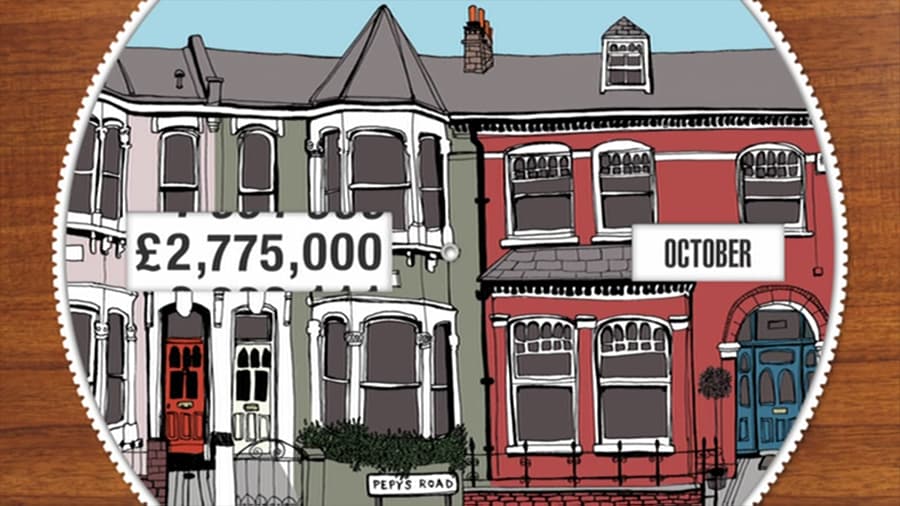
Media Institutions
“Capital” was a joint production between the British Broadcasting Corporation and Kudos Productions. You already know the BBC is a public broadcaster funded by the TV license fee in the UK. It also raises money through syndication rights around the world and selling related products, such as magazines and books. With a mission to “inform, educate and entertain”, its responsibilities are governed by a royal charter and overseen by the British Government. That document sets out five purposes, including the responsibility “to show the most creative, highest quality and distinctive output” and “to reflect, represent and serve the diverse communities of all of the United Kingdom’s nations and regions”.
Since “Capital” is “distinctive” entertainment and the narrative offers a “diverse” range of representations, the programme fulfils aspects of BBC’s remit. The corporation also has to promote the UK’s “culture and values to the world”. Although this mostly refers to news broadcasts, the distribution of “Capital” in different markets fulfils this purpose and helps drive important revenue back to the BBC.
By contrast, Kudos is part of a much larger media group with commercial interests.
Representing some of the biggest brands in television, such as “Big Brother” and “Black Mirror”, Banijay is one of the largest content producers and distributers in the world. Purchased as part of a wider acquisition, Kudos Productions is now one of its subsidiaries. Banijay describe their label as “one of the world’s leading television production companies” who work with the “best global talent to create, develop and produce popular, innovative, award-winning drama and comedy series”.
Content partnerships between the BBC and the commercial sector helps solve complex funding issues and spread the legal and financial risks associated with making television programmes. This enables the UK television industry to compete with the big budgets of the American studios. That is why you will see British dramas continuing to appeal to a global audience. Lots of series would not get made if it wasn’t for these co-productions.
By the way, this media business model also enables the BBC to deliver more diverse voices on the screen. If you are a smaller private enterprise, you can make use of the corporations technical infrastructure and distribution network to reach a larger audience.
“Capital” DVD Cover
Try analysing how the DVD cover might entice the audience to purchase a copy of the programme.

Essay Questions
- “Audiences will decode the meaning of a television programme according to their frameworks of knowledge and do not simply accept the preferred reading.” To what extent do you agree with this statement. You should refer to your Close Study Product “Capital” to support your argument.
- How valid is Stuart Hall’s reception theory to understanding the relationship between the producer and the television audience?
- Evaluate the usefulness of Stuart Hall’s reception theory in understanding the relationship between the producer and the audience. You should refer to your Close Study Product “Capital” to support your answer.
- It has been argued television programmes simply reinforce dominant values and ideologies.
- Explain how media effects theories can be used to understand the ways television programmes can shape the audience’s view of the world.
- The cultivation theory suggests television has the power to influence the audience’s values and beliefs. To what extent does the Close Study Product “Capital” support this view?
- Albert Bandura suggested audiences developed attitudes and ideologies through modelling by the media. Explore this idea in relation to the Close Study Product “Capital”.
- To what extent do television programmes challenge the social and cultural context in which they are produced.
- Explain how the representation of characters and setting in the Close Study Product “Capital” incorporates viewpoints and ideologies.
- To what extent does the programme demonstrate the bardic function of television.
- Explain why stereotypes are used in television shows.
- With television shows being syndicated around the world, to what extent do producers need to be aware of international audiences?
- Explore how representations of ethnicity have been constructed in the Close Study Product “Capital”.
- Explore how the codes and conventions of television have been used to construct representations of gender in the Close Study Product “Capital”.
- Analyse the representation of nationality and ethnicity in the Close Study Product “Capital” in terms of Roland Barthes’ signification process.
- How important are digital platforms to the success of television programmes.
- To what extent does the Close Study Product “Capital” satisfy the BBC’s responsibilities as a broadcaster?
- How important is marketing to the television industry?




